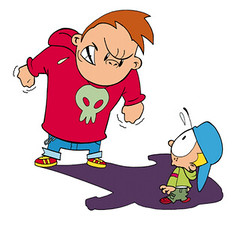AP English Literature Rhetorical Devices Flashcards
Terms : Hide Images [1]
| 13573225408 | allegory | story or poem that can be used to reveal a hidden meaning |  | 0 |
| 13573225409 | allusion* | A reference to a well-known person, place, event, literary work, or work of art |  | 1 |
| 13573225410 | anaphora* | repetition in first part of a sentence , to have an artistic meaning |  | 2 |
| 13573225411 | apostrophe | figure of speech used to adresss an imaginary character |  | 3 |
| 13573225412 | approximate rhyme | words in rhyming pattern that sound alike |  | 4 |
| 13573225413 | aside | when a character's dialogue is spoken but not heard by other actors on the stage |  | 5 |
| 13573225414 | blank verse | poetry written in meter without an ending rhyme |  | 6 |
| 13573225415 | cacophony | blend of unharmonious sounds |  | 7 |
| 13573225416 | caesura | pause in the middle of a line |  | 8 |
| 13573225417 | catharsis | the release of emotions through art (emotional cleanse) |  | 9 |
| 13573225418 | characterization* | process of revealing characters personality |  | 10 |
| 13573225419 | comedy | drama that is amusing or funny |  | 11 |
| 13573225420 | didactic writing | writing with a primary purpose to teach or preach |  | 12 |
| 13573225421 | dramatic exposition* | prose commentaries, to provide background information about the characters and their world |  | 13 |
| 13573225422 | end stopped line | line ending in regular punctuation |  | 14 |
| 13573225423 | epiphany | when a character receives a spiritual insight into their life |  | 15 |
| 13573225424 | euphony | smooth choice and arrangement of sounds |  | 16 |
| 13573225425 | extended figure | A figure of speech sustained or developed through a considerable number of lines or through a whole poem. |  | 17 |
| 13573225426 | figurative language | Language that cannot be taken literally since it was written to create a special effect or feeling. |  | 18 |
| 13573225427 | figure of speech | a way of saying something other than the ordinary way |  | 19 |
| 13573225428 | foot | basic unit in the scansion or measurement of verse , stressed and un stressed syllables |  | 20 |
| 13573225429 | form | external pattern or shape of a poem |  | 21 |
| 13573225430 | hamartia* | tragic flaw which causes a character's downfall |  | 22 |
| 13573225431 | verbal irony | A figure of speech in which what is said is the opposite of what is meant |  | 23 |
| 13573225432 | dramatic irony | Irony that occurs when the meaning of the situation is understood by the audience but not by the characters in the play. |  | 24 |
| 13573225433 | situational irony* | refers to an occurrence that is contrary to what is expected or intended |  | 25 |
| 13573225434 | meter | A regular pattern of stressed and unstressed syllables in a line of poetry |  | 26 |
| 13573225435 | metonymy | A figure of speech in which something is referred to by using the name of something that is associated with it |  | 27 |
| 13573225436 | motivation* | A need or desire that energizes and directs behavior |  | 28 |
| 13573225437 | hyperbole* | A figure of speech that uses exaggeration to express strong emotion, make a point, or evoke humor |  | 29 |
| 13573225438 | oxymoron | A figure of speech that combines opposite or contradictory terms in a brief phrase. |  | 30 |
| 13573225439 | paradox | A contradiction or dilemma |  | 31 |
| 13573225440 | rhythm | A regularly recurring sequence of events or actions. |  | 32 |
| 13573225441 | sarcasm* | the use of irony to mock or convey contempt |  | 33 |
| 13573225442 | satire | A literary work that criticizes human misconduct and ridicules vices, stupidities, and follies. |  | 34 |
| 13573225443 | simile* | A comparison using "like" or "as" |  | 35 |
| 13573225444 | soliloquy | A long speech expressing the thoughts of a character alone on stage |  | 36 |
| 13573225445 | stream of consciousness | private thoughts of a character without commentary |  | 37 |
| 13573225446 | synecdoche | a figure of speech in which a part is made to represent the whole or vice versa |  | 38 |
| 13573225447 | synesthesia | describing one kind of sensation in terms of another ("a loud color", "a sweet sound") |  | 39 |
| 13573225448 | theme* | Central idea of a work of literature |  | 40 |
| 13573225449 | tone* | Attitude a writer takes toward the audience, a subject, or a character |  | 41 |
| 13573225450 | understatement | the deliberate representation of something as lesser in magnitude than it actually is; a deliberate under-emphasis |  | 42 |
| 13573225451 | polysyndeton* | the use, for rhetorical effect, of more conjunctions than is necessary or natural |  | 43 |
| 13573225452 | asyndeton* | a construction in which elements are presented in a series without conjunctions |  | 44 |
| 13573225453 | ambiguity | An event or situation that may be interpreted in more than one way. |  | 45 |
| 13573225454 | archetype | an original model on which something is patterned |  | 46 |
| 13573225455 | antecedent action | action or events which occur before the story begins |  | 47 |
| 13573225456 | aphorism | A brief, cleverly worded statement that makes a wise observation about life. |  | 48 |
| 13573225457 | analogy | method of comparing two similar things using parallelism to show similarities |  | 49 |
| 13573225458 | anecdote | a short and amusing or interesting story about a real incident or person |  | 50 |
| 13573225459 | antithesis | an exact opposite; an opposite extreme |  | 51 |
| 13573225460 | colloquial | characteristic of informal conversation |  | 52 |
| 13573225461 | chiasmus | a statement consisting of two parallel parts in which the second part is structurally reversed |  | 53 |
| 13573225462 | coherence | the quality of being logical, orderly, and clearly connected |  | 54 |
| 13573225463 | conceit | a fanciful, particularly clever extended metaphor |  | 55 |
| 13573225464 | diacope | repetition of a word or phrase with one or two intervening words |  | 56 |
| 13573225465 | explication | a detailed explanation of the meaning of a text |  | 57 |
| 13573225466 | juxtaposition | placing two elements side by side to present a comparison or contrast |  | 58 |
| 13573225467 | hypophora | the technique of asking a question, then proceeding to answer it |  | 59 |
| 13573225468 | euphemism | An indirect, less offensive way of saying something that is considered unpleasant |  | 60 |
| 13573225469 | enumeratio | detailing parts, causes, effects, or consequences to make a point more forcibly |  | 61 |
| 13573225470 | enjambment | line of poetry that ends with no punctuation and consequently runs over into the next line |  | 62 |
| 13573225471 | invective | insulting, abusive, or highly critical language |  | 63 |
| 13573225472 | litotes | A form of understatement that involves making an affirmative point by denying its opposite |  | 64 |
| 13573225473 | motif | A recurring theme, subject or idea |  | 65 |
| 13573225474 | parallelism | the use of a series of words, phrases, or sentences that have similar grammatical form |  | 66 |
| 13573225475 | prosody | the study of sound and rhythm in poetry |  | 67 |
| 13573225476 | syntax | the grammatical arrangement of words in sentences |  | 68 |
| 13573225477 | volta | the shift or point of dramatic change in a poem | 69 | |
| 13573225478 | rhetoric | the art of using language effectively and persuasively |  | 70 |
| 13573225479 | rhetorical question | A question asked merely for effect with no answer expected. |  | 71 |
| 13573225480 | parody | a work which imitates another in a ridiculous manner |  | 72 |
| 13573225481 | inference | A conclusion reached on the basis of evidence and reasoning |  | 73 |
| 13573225482 | tragedy | A drama or literary work in which the main character is brought to ruin or suffers extreme sorrow |  | 74 |
| 13573225483 | undertone | a hidden or implied meaning |  | 75 |
| 13573225484 | dissonance | lack of agreement or harmony |  | 76 |
| 13573225485 | frame story | story that contains another story/stories that is/are usually significant to the main story |  | 77 |
| 13573225486 | expletive | an exclamation or oath, often obscene |  | 78 |
| 13573225487 | atmosphere/mood | the mood/ feeling of the literary work created for the reader by the writer. | 79 | |
| 13573225488 | auditory imagery | use of language to represent an experience pertaining to sound | 80 | |
| 13573225489 | universal theme | A message about life that can be understood by most cultures |  | 81 |
| 13573225490 | implied meaning | the meaning of a word understood, though unexpressed, usually through connotations and imagery; where you have to read between the lines to get the underlying meaning/subtext of a text |  | 82 |
| 13573225491 | interior monologue | a form of stream-of-consciousness writing that represents the inner thoughts of a character |  | 83 |
| 13573225493 | character sketch | a short piece of writing that reveals or shows something important about a person or fictional character | 84 | |
| 13573225494 | epilogue | a short passage added at the end of a literary work | 85 | |
| 13573225495 | epistle | a letter or literary composition in letter form | 86 | |
| 13573225496 | hexameter | a line of poetry containing six feet | 87 | |
| 13573225497 | tetrameter | a line of poetry containing four feet | 88 | |
| 13573225498 | pentameter | a line of poetry containing five feet | 89 | |
| 13573225499 | lament | a passionate expression of grief or sorrow | 90 |
